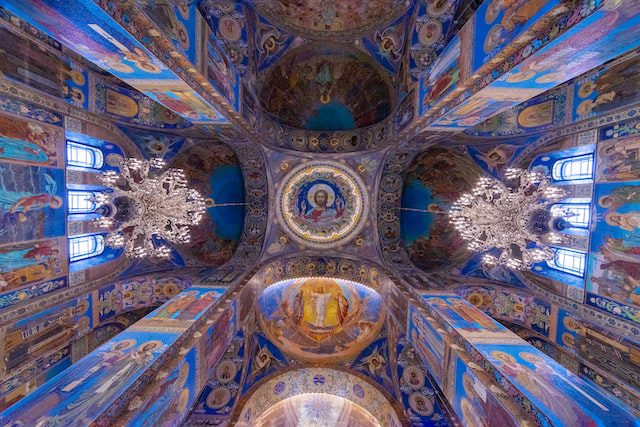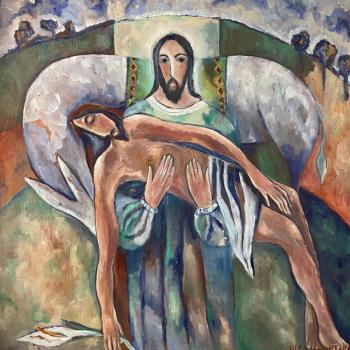We live in crazy times. In a fit of supreme arrogance, there are those who comb through history in an effort to identify the failings of our cultural heroes.
How hard can that be? The answer is, not hard at all. Anyone who is honest with themselves knows that even the best of our own past selves would find it hard to live up to the best of our present selves.
- There are things that we know now that we didn’t know then.
- There are cultural influences that cast a spell on us that is now broken.
- Over time, we come under the influence of friends and teachers who draw the best out of us.
- The Holy Spirit draws our attention to dangerous assumptions and unexamined habits that shape our lives.
- And we mature – or we should – if growing up and growing older has any value at all.
So, criticizing people who are dead and gone is an easy job.
As someone who has spent a lot of time in classrooms over the years, I confess that the whole exercise is tiresome. Fingering the failings of people from the past is the kind of cheap trick that students pull who want look clever, but who can’t be troubled to learn a bit of history or acquire a bit of humility.
So, on this All Saints Day, as we think back over the lives of our heroes of the faith, what should we remember and what can we learn?
One, let’s draw some consolation from knowing that we are not alone and it’s not all down to us.
I feel sorry for people who are convinced that the dead are gone and that we are all on our own. Shouldering the weight of both the past and assuming complete responsibility for the future is a terrible burden. I would have thought that the present was plenty to deal with.
Our theology teaches us that we don’t need to do this. The heroes of our faith are not dead and gone. They are “a cloud of witnesses” – and no, that doesn’t mean that they are our audience. It means that they are witnesses, reminders, enduring exemplars of what it means to be disciples. They cheer us on, not as celebrities, but as followers of Christ’s way. But that should be a source of enormous consolation.
Two, let’s remember that we have a responsibility to continue the work of the Holy Spirit that was done in their lives.
One of the poisonous, primitivistic assumptions driving today’s hatred for all things past is the assumption that we can and should just burn down the past and start over. Believe me, the people who think this have no clue what they are suggesting.
They are unaware of how much we depend upon the work that the Holy Spirit has done in and through the lives of those who went before us. They have no historical awareness that alerts them to the distances we have already traveled: in spreading the faith; in challenging racism; in working to treat women as the daughters of God, made in God’s image; in providing homes for orphans and safe places for the dispossessed; in feeding the poor; in educating every generation; and in shaping our culture’s understanding of what it means to love and show mercy.
God is active in every generation and raises up witnesses. And this day we celebrate what the Spirit has begun in them and continues in us.
Three, let’s remember that the Saints were human beings, just like us.
On All Saints Day, it is easy to get lost in, if not overwhelmed by their stories of sacrifice, dedication, and martyrdom. And the saints of the church become not just literal, but metaphorical pieces of stained glass: superhuman beings who – thanks to either eccentricity or extraordinary character – do things that have not the smallest shred of “real” humanity about them.
But that is simply not true. James Martin points out that:
they had difficulties with their families: St. Thomas Aquinas’ family was so opposed to his entering the Dominican order in the 13th century that they locked him up in a jail. They suffered from physical ailments: St. Francis of Assisi spent a great deal of his later life battling terrible eye infections. And they faced difficulties from the religious organizations to which they belonged: St. Ignatius of Loyola, the 16th-century founder of the Jesuits, was several times thrown into jail by the Inquisition, which was suspicious of his ways of praying.
As Ambrose Bierce puts it, “Saints are dead sinners, revised and edited.” Let’s remember that this day.
Four, let’s remember that the great saints of the world were simply focusing on being faithful. We know more about their efforts and their significance than they did, and it wasn’t their success that motivated them. In fact, they often thought of themselves as failures.
St. Thomas had such a powerful experience worshiping on the feat of St. Nicolas in 1273 that he left his great theological work, the Summa, unfinished. He confided to Reginald, his secretary and friend, “The end of my labors has come. All that I have written appears to be as so much straw after the things that have been revealed to me”
Mother Teresa of Calcutta, left behind a journal recounting her struggles with feeling the nearness of God. She wrote,
“We must know exactly when we say yes to God what is in that yes. Yes means ‘I surrender,’ totally, fully, without any counting the cost.” It meant accepting whatever God gave, and giving whatever God chose to take away. And for Teresa, [that] meant accepting the burden of Christ’s Passion. When she was allowed that insight into the nature of her darkness, she recognized it as an inevitable aspect of the call within a call, and would go so far as to say that she actually loved the darkness because it was “a part, a very, very small part of Jesus’ darkness & pain on earth.”
And five, let us remember that the lives of the Saints point to a single purpose. As Mother Teresa put it so memorably, “Do something beautiful with your life for God.”
One of the most dangerous features of our current cultural climate is the conceit that saying something about the failings of others is an accomplishment, a path to the moral high ground, a sign of superiority. But that is the very essence of spiritual pride. All Saints Day names that pride for what it is and offers a different way.
The great saints of the church are scattered around the world in graves of every conceivable kind, some known, some unknown. They lived out their lives in varied ways, in bodies both male and female, in bodies of every color, speaking languages from around the world.
They faced a variety of challenges. They were sinners as much in need of grace as you or me. They had as many failings as they did accomplishments. In fact, more often than not, in the eyes of the world, they looked like failures and fools.
But we remember them because they did “something beautiful” with their lives for God. If we remember anything this day, that – above all things – is worth remembering.
You have a life. By virtue of your baptism, you are raised to new life in Christ, and you have been given the Holy Spirit. Like the Saints, then, choose this day to do something beautiful for God.
Photo by Mitya Ivanov on Unsplash













